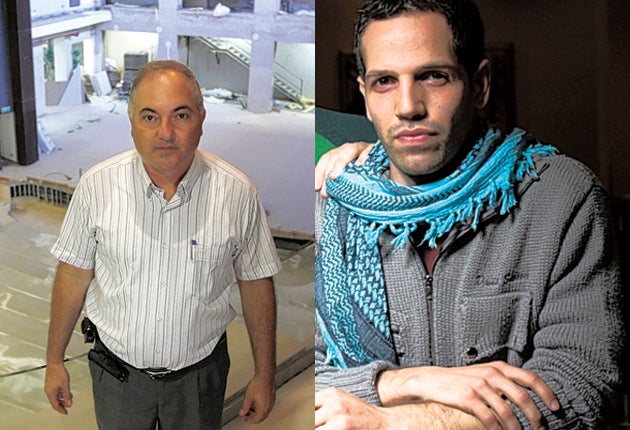Israeli actors refuse to take the stage in settlement theatre

Five leading Israeli theatres were facing a mounting political row yesterday after a pledge by 60 of the country's most prominent actors, writers and directors to boycott the companies' planned performances in a Jewish West Bank settlement.
The companies triggered the protest by planning a programme of performances to mark the opening of a new £6.4m cultural centre in the West Bank settlement of Ariel later this year.
The protest – which was condemned by the Israeli Prime Minister, Benjamin Netanyahu – includes Yousef Sweid and Rami Heuberger, two of Israel's best known actors, as well as its most venerated living playwright, Joshua Sobol, whose Holocaust work Ghetto won the Evening Standard Play of the Year award when Nicolas Hytner directed it at London's National Theatre in 1989.
Their petition, sent to Israel's Likud Culture Minister, Limor Livnat, expressed "dismay" at the theatres' decision to perform in the settlement's new auditorium and served notice that the artists will refuse to perform in any settlements. Calling on Israeli theatres to "pursue their prolific activity" within the "green line" that marked its border until the 1967 Six Day War, it says that to do otherwise would "strengthen the settlement enterprise." .
Mr Sobol told the liberal daily Haaretz, which first revealed the theatres' plans, that he hoped the petititon would shake up the Israeli public and promot a change of heart by the theatre managements. "There was a lethargy in recent years," the playwright said. "People somehow became indifferent to the many existential issues in Israel, and this may revive public debate."
Ariel, a settlement of around 20,000 people, is deep inside the West Bank and its new cultural centre is close to completion after being built in fits and starts over the past 20 years. The theatre's manager, Ariel Turgeman, has insisted that the company's contracts do not allow them to cancel performances in such circumstances.
The settlements will be at the heart of new direct negotiations brokered by US President Barack Obama due to open at the White House this week. They are regarded by most of the international community, including Britain, as illegal under international law.
Mr Netanyahu, who flies to Washington for the talks tomorrow, raised the artists' protest at the weekly meeting of his cabinet and declared that Israel was facing a campaign from "elements" abroad to "delegitimise" Israel. "The last thing we need at this time, while under such an attack, is an attempt for boycotts from within," he said. "I don't want to revoke every artist's right to a political opinion, but we as a government should not fund boycotts against Israel's citizens."
The theatres, which include the Habima and Cameri of Tel Aviv, both of which have international reputations, announced over the weekend that the productions woud go ahead, saying that while they respected the views of their actors they will perform in any place where there are theatre-loving Israelis."
Mr Netanyahu's remarks followed a chorus of outrage from the political right and more overt threats to revoke state funding for the theatres in respect of any artists' boycott. Insisting that the performances should go ahead, Ms Livnat said "Culture is a bridge in society, and political disputes should be left outside cultural life and art."
The Finance Minister, Yuval Steinitz, said the government should withdraw funding from theatres which refuse to perform in Ariel, adding: "The State of Israel invests a lot of money in theatres. The taxes helping those theatres exist are paid by Ariel's residents as well, and those who are sabotaging this should not be employed in Israel."
But Yossi Sarid, a leftist columnist and former leader of the Meretz party, wrote in Haaretz that the theatre managements had made a "big mistake" and added: "Artists and actors are not soldiers marching in formation. No one can force them to perform, unless his name is [Andrei] Zhdanov. [the Soviet politician who sought to purge Russia's leading composers in Stalin's era]. It's not the artists who are divisive, but those who decided to build the settlements, including the Culture Minister."
Join our commenting forum
Join thought-provoking conversations, follow other Independent readers and see their replies
Comments
Bookmark popover
Removed from bookmarks